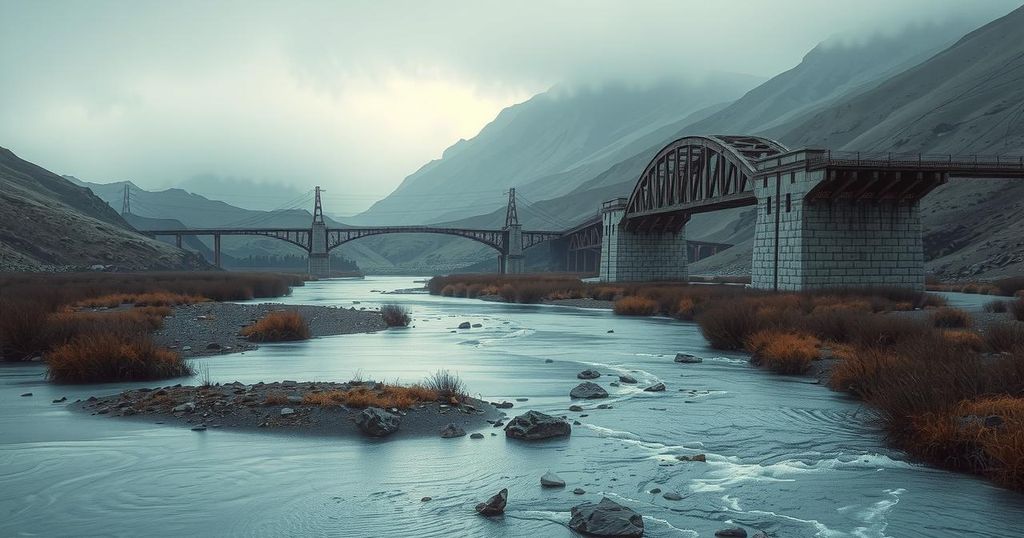Escalating Violence in Goma Leads to Nearly 3,000 Deaths Amid Rebel Control

The UN reports nearly 3,000 fatalities in Goma, DRC, due to fighting between rebels and the Congolese army. Despite a declared ceasefire from the AFC rebel coalition, conflicts persist, with heavy casualties and humanitarian crises intensifying in the region. Accusations of Rwandan support for the M23 group exacerbate the situation as tensions rise amid territorial battles and control over rich mineral deposits.
The United Nations reports that nearly 3,000 individuals have been killed in Goma, Democratic Republic of Congo (DRC), following its capture by rebel forces after intense fighting with the Congolese military. Vivian van de Perre, the deputy head of the UN mission in DRC, disclosed via video link that 2,000 bodies were collected from the streets, with another 900 being housed in local morgues. “We expect this number to go up,” she cautioned, highlighting the presence of numerous decomposing bodies in the area.
The Alliance Fleuve Congo (AFC), a rebel coalition that includes the M23 group, declared a ceasefire amid the humanitarian crisis attributed to the Congolese government. However, the DRC government dismissed this ceasefire as insincere, and heavy fighting has persisted in South Kivu province, as reported by the UN. The eastern DRC has a long history of violence linked to ethnic conflicts and struggles over valuable land and resources.
Allegations have emerged from the United States, Congo, and UN experts suggesting that Rwanda supports the M23, a group primarily composed of ethnic Tutsi rebels. Rwanda’s government has refuted these claims but acknowledged possessing military assets in eastern Congo to protect its own security. President Paul Kagame stated uncertainty about whether Rwandan troops are in Congo but emphasized that Rwanda will pursue its own defense needs.
Since 2022, the M23 has resurgent rebel activities against the DRC government, claiming to represent Tutsi minority interests in territories that border Rwanda and Uganda. Goma, as the capital of North Kivu province, sits atop significant mineral resources, especially coltan, vital for electronics manufacturing. Ongoing hostilities have been noted, with increased tensions in Bukavu as M23 positions advance within proximity of the city.
Van de Perre expressed concerns over the potential loss of Kavumu airport in Bukavu, essential for humanitarian actions, as rebels continue to assert control over the region. While the AFC rebels claim they do not aim to seize Bukavu, they have signaled intentions to maintain presence and protect civilians. The group has recently expanded its territorial reach and aims to exert further influence in Kinshasa, the national capital, situated approximately 930 miles from Goma.
With the DRC government not confirming the takeover, it has acknowledged the rebels’ presence in Goma, while designating a new military governor for the area. “We remain under occupation in Goma. The situation is still highly volatile,” said Van de Perre, indicating the rebels control all escape routes from the city. Nearly 2,000 civilians are currently seeking shelter at UN peacekeeping bases in Goma, highlighting the dire humanitarian crisis that is unfolding in the region.
The ongoing conflict in the eastern Democratic Republic of Congo, particularly around Goma, is rooted in deep-seated ethnic tensions and competition for land and mineral resources. These disputes have existed for decades, resulting in significant loss of life and one of the largest humanitarian crises globally. The region is also impacted by external influences, predominantly from neighboring Rwanda, which is accused of backing certain rebel factions. This turmoil has intensified following the resurgence of the M23 rebel group, which has been active since its formation over a decade ago. Their motivations include defending the interests of the Tutsi minority communities, further complicating an already intricate political landscape.
The severe violence in Goma has led to significant civilian casualties, with approximately 3,000 individuals reported deceased amid ongoing hostilities. The humanitarian situation remains critical, characterized by displacement and the struggle for control of essential territories and resources. Both the UN and regional stakeholders express grave concern regarding the escalating conflict, the implications for civilian safety, and the potential for further instability in the DRC and surrounding nations.
Original Source: www.cnn.com








